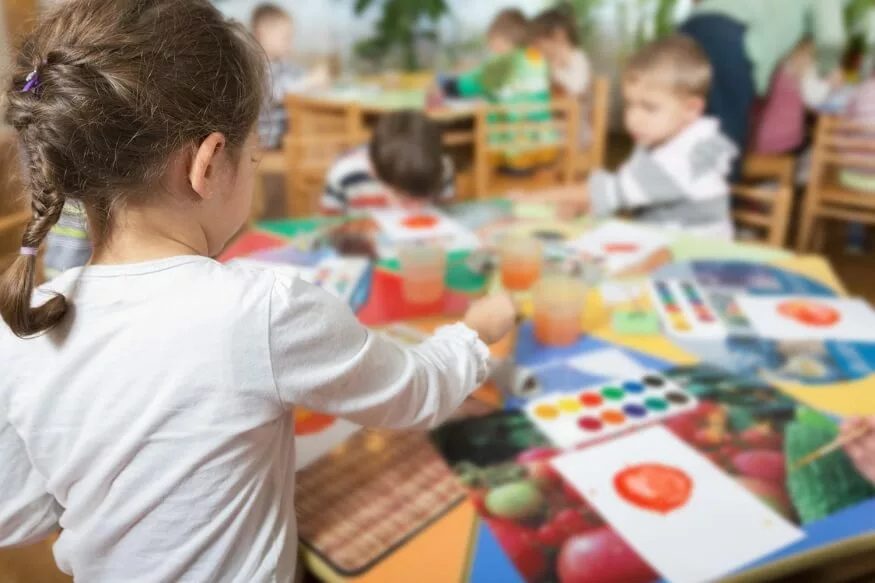Handling naughty or mischievous behaviour in children can be a challenging task for parents. It’s important to strike a balance between setting boundaries and providing love and support. In this article, we’ll explore ten helpful parenting tips for parents to handle naughty kids effectively.
Positive Parenting tips:
Here are 10 good parenting tips to handle naughty kids. It is also helpful to understand the importance of good parenting.
1. Maintain a Calm and Patient Attitude
When dealing with naughty kids, it’s crucial to be calm and patient. These are the most helpful tips for parents to handle naughty kids. Children often act out to seek attention or express their emotions. Yelling or getting angry can escalate the situation and make it harder to address the underlying issues. Take a long breath, count to ten if necessary, and move forward with avoidance.
Assume your child is throwing a fit at the grocery store because they want a candy bar. Here the main good parenting tips is being calm and patient. Instead of becoming enraged, you explain calmly that candy is a treat and is not a good choice before dinner. You keep your cool and wait for them to calm down, offering distractions such as a healthy snack or a small toy.
2. Set Clear and Consistent Boundaries
Establishing clear and consistent boundaries is one of the important good parenting tips. Children thrive when they understand the rules and boundaries of their environment. Maintain sameness in these boundaries so your child knows what is possible. Regularity gives children a sense of being safe and helps them understand the effects of their actions.
Example: You’ve set a rule that homework must be completed before screen time. Your child repeatedly tries to negotiate for more screen time without finishing their homework. To enforce the boundary, you calmly remind them of the rule and explain that the consequence of not following it is a temporary suspension of screen time privileges.
Also Read: Parenting Tips for kids with ADHD: Do’s and Don’ts
3. Use Positive Reinforcement
One of the useful positive parenting tips is to encourage good behavior by offering praise and positive reinforcement when your child follows the rules or acts appropriately. Celebrate their achievements, no matter how small they may seem. Positive reinforcement can motivate children to repeat desirable behaviors.
Example: Your child has been consistently cleaning up their toys after playtime. You praise their effort and let them choose a small reward, like watching their favorite TV show or having a special dessert as a treat for their good behavior.
4. Communicate Effectively
Open and honest communication is vital parenting tips for parents. Consider your child’s behavior and the reasons for it with them. Listen to their ideas and emotions without passing judgment. Understanding their point of view allows you to deal with any deeper problems or emotions that may be influencing their behavior.
Example: Just imagine your child has been disobeying at school. You should ask their point of view instead of scolding them. They admit that they have been having problems with a classmate. You talk about the problem, give advice on how to handle problems, and make them comfortable that you are there to help.
5. Model Appropriate Behaviour
Children regularly learn by observing their parent’s behaviour. So the parents should be aware about the importance of good parenting. Set a good example for your child’s behavior. Show these qualities in your interactions with them and others if you want them to be respectful, patient, and polite.
Example: you are stuck in traffic when another driver cuts you off and makes a rude gesture. Instead of becoming rude, you maintain your cool and explain to your child the importance of being calm and respectful on the road.
6. Offer Choices and Independence
Children, even when being naughty, often crave a sense of control and independence. Offer them age-appropriate choices whenever possible. For example, let them decide what to wear, what book to read, or which vegetable to have for dinner. This can help reduce power struggles and improve cooperation.
Example: You want your child to eat their vegetables. Instead of forcing them, you present two options: broccoli or carrots. By allowing them to make a choice, you empower them to have some control over their meal, making it more likely they’ll eat their vegetables.
7. Time-Outs and Consequences
When a child’s behavior becomes uncontrollable, it may be necessary to use time-outs. Time outs should be a short period during which the child can calm down and reflect on their actions. Discipline is a crucial aspect of good parenting tips. Consequences should be logical and related to the misbehavior. For example, if a child refuses to clean up their toys, a consequence might be temporarily losing access to their favorite toy.
Example: Your child is repeatedly hitting their younger sibling. You give them a time-out, explaining that hitting is not acceptable behaviour. During the time-out, they reflect on their actions and the impact they had on their siblings. Afterward, you discuss alternative ways to resolve conflicts.
Also Read: How to Handle Tattling in Preschool
8. Teach Problem-Solving Skills
Engage your child in problem-solving activities to help them to develop their skills. Encourage them to create ideas, and search various options. This not only gives them knowledge; it also teaches them the importance of skills.
Example: Imagine your child gets angry because they don’t know how to finish a puzzle. Instead of doing it for them, encouraging them to consider different approaches, try different ideas, and persevere until they succeed. This teaches them patient and critical thinking skills.
9. Seek Professional Help When Necessary
If your child’s bad behavior continues or gets worse beyond your best efforts, consider seeking help from a child psychologist or therapist. They can offer guidance and support to solve issues that may be leading to the behavior. It is one of the most helpful parenting tips for parents.
For example, whatever your efforts, your child’s behavior at school continues to degrade. You consult a child psychologist, who identifies underlying emotional issues. Your child will learn to better manage their emotions and behaviors with therapy and guidance.
10. Show Unconditional Love and Support
Above all, ensure that your child knows you love and support them, even when their behaviour is challenging. Separating the behaviour from the child is crucial. While you may not approve of their actions, your love for them remains constant. A strong parent-child bond can help children feel secure and more willing to work on their behaviour.
Example: Your child has a meltdown in a public place. While you address the behavior, you make it clear that you still love and support them. Afterward, you have a calm conversation about what happened, emphasizing that your love is unwavering.
Also Read: Tips to Help a Lonely Child Make Friends
Handling naughty kids is a complex and often emotionally charged task. Preschool teachers at EuroKids recommend following these good parenting tips can serve as a starting point for parents looking to navigate challenging behavior in their children. Keep in mind that not all kids are the same, and What works for one child may not work for another. Be flexible, and able to change your approach according to your child’s unique requirements. Implementing positive parenting tips involves being a positive role model. Positive parenting tips are instrumental in fostering a nurturing environment, guiding behavior, and instilling valuable life skills in children. Patience, and understanding parenting are essential in helping your child grow into a respectful and adjusted individual.










